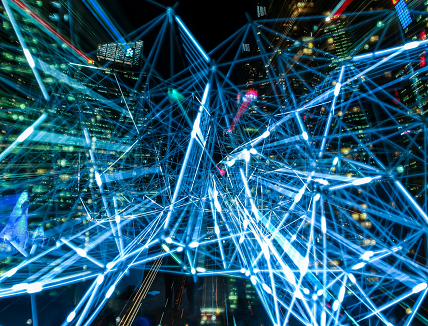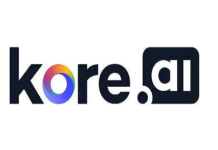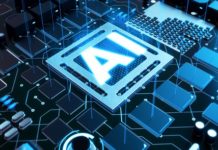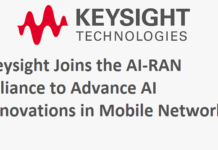
Artificial Intelligence (AI) has become one of the most transformative technologies of our time, revolutionizing how we live, work, and interact with the world around us. From virtual assistants and chatbots to self-driving cars and medical diagnosis tools, AI has rapidly evolved into a crucial component of modern-day technology. With its ability to learn, adapt, and make decisions without human intervention, AI has the potential to solve some of the world’s most complex problems.
But what exactly is AI, and how does it work? In this article, we’ll take a closer look at the power of AI, examining its role in shaping the future of technology and exploring some of the key benefits and challenges associated with this groundbreaking technology. So sit back and get ready to delve into the world of AI, where the possibilities are endless.
The Evolution of Artificial Intelligence
The concept of Artificial Intelligence dates back to the 1950s when scientists first began exploring the idea of creating machines that could think and learn like humans. Over the years, AI has evolved from simple rule-based systems to the more advanced machine learning and deep learning algorithms we see today. In addition, the development of high-speed processors, big data, and cloud computing has also played a significant role in the advancement of AI.
Today, AI is used in various applications, from natural language processing and image recognition to predictive analytics and autonomous systems. In addition, the emergence of AI-powered assistants like Siri and Alexa has made it possible for people to interact with technology more naturally and intuitively.
Applications of AI in Modern-Day Technology
Artificial Intelligence has transformed the way we interact with technology, making it possible for machines to understand and respond to our needs in real time. AI is even used in virtual betting at many sportsbooks. Here is the link for more details: https://parimatch.co.tz/blog/sw/aina-za-beti-za-soka-zimeelezewa/.
Some of the most popular applications of AI include virtual assistants, chatbots, recommendation engines, and predictive analytics.
- Virtual assistants like Siri and Alexa have become integral to our daily lives, providing instant access to information and helping us manage our schedules and tasks more efficiently.
- Chatbots are also becoming increasingly popular, providing businesses with a scalable and cost-effective way to handle customer inquiries and support.
- Recommendation engines, powered by AI algorithms, are used by e-commerce platforms like Amazon to provide personalized product recommendations to users based on their browsing and purchase history.
- Predictive analytics is another popular application of AI businesses use to analyze large volumes of data and make data-driven decisions.
The Impact of AI on Various Industries
Artificial Intelligence can potentially transform virtually every industry, from healthcare and finance to manufacturing and transportation. For example, in healthcare, AI-powered tools are being used to diagnose diseases, analyze medical images, and develop personalized treatment plans.
In finance, AI is used to detect fraud, predict market trends, and automate processes like underwriting and risk assessment processes. In manufacturing, AI is being used to optimize production processes, reduce waste, and improve quality control. In transportation, self-driving cars powered by AI are expected to revolutionize how we travel, making them safer and more efficient.
The Future of AI and Its Potential
The potential of Artificial Intelligence is virtually limitless, with experts predicting that AI could become as ubiquitous as electricity in the coming years. AI has the potential to revolutionize how we live, work, and interact with the world around us, making it possible for machines to perform tasks previously thought to be the exclusive domain of humans.
AI is also expected to drive significant economic growth, with studies suggesting that AI could add trillions of dollars to the global economy over the next decade. However, there are also concerns that AI could exacerbate existing social and economic inequalities, leading to job displacement and other negative consequences.
AI and Ethical Concerns
As Artificial Intelligence continues to evolve, there are growing concerns about the ethical implications of this technology. One of the biggest concerns is the potential for AI to be used in harmful ways to individuals or society as a whole.
For example, there are concerns about the use of facial recognition technology by law enforcement agencies, as well as the potential for AI to be used in ways that violate privacy rights. There are also concerns about the potential for AI to be used in ways that perpetuate existing biases and inequalities.
To address these concerns, developers, and policymakers need to work together to ensure that AI is developed in a way that is ethical and equitable.
AI and Job Displacement
One of the biggest concerns about AI is the potential for job displacement, as machines become increasingly capable of performing tasks that humans previously performed. While AI may eliminate some jobs, there are also opportunities for new jobs to be created in fields like data science, machine learning, and cybersecurity.
To minimize the negative impact of AI on the labor market, policymakers need to invest in education and training programs that prepare workers for the jobs of the future. It is also important for businesses to take a proactive approach to managing the transition to AI, ensuring that workers are equipped with the skills they need to succeed in a rapidly changing job market.
AI and Cybersecurity
As Artificial Intelligence becomes more prevalent, it is also becoming an increasingly important tool in the fight against cybercrime. AI-powered cybersecurity tools are being used to detect and respond to cyber threats in real time, helping to protect businesses and individuals from cyber attacks.
However, there are also concerns that cybercriminals could use AI to create more sophisticated and targeted attacks. To address these concerns, it is important for cybersecurity professionals to stay up-to-date on the latest developments in AI and to develop strategies for defending against AI-powered attacks.
The Role of AI in Healthcare
One of the most promising applications of Artificial Intelligence is in the field of healthcare, where AI-powered tools are being used to improve diagnosis, treatment, and patient outcomes. AI-powered tools are being used to analyze medical images, detect diseases, and develop personalized treatment plans.
AI is also being used to improve clinical decision-making, helping to reduce errors and improve patient outcomes. The use of Artificial Intelligence in healthcare is expected to continue to grow in the coming years, with the potential to revolutionize how we approach healthcare.
Conclusion – The Importance of Embracing AI in Modern-Day Technology
AI has the potential to transform virtually every aspect of our lives, from the way we work and communicate to the way we access healthcare and entertainment. While there are certainly challenges associated with this technology, there is also tremendous potential for AI to solve some of the world’s most pressing problems.
To fully realize the potential of Artificial Intelligence, businesses, policymakers, and individuals need to embrace this technology and work together to address the challenges and opportunities associated with it. With the right approach, AI has the potential to make our world a better, safer, and more equitable place.


















